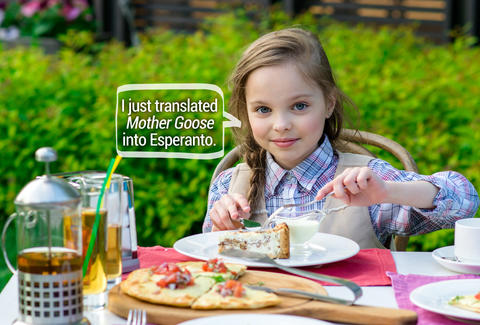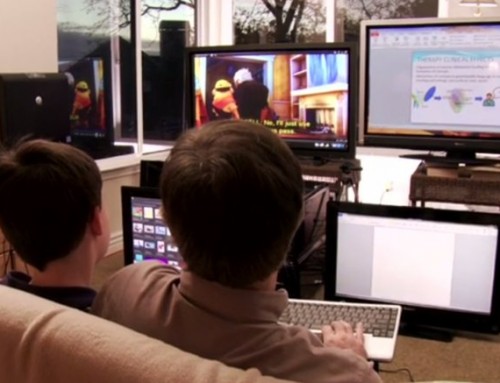Special needs parenting, you can’t do it on your own.
There are times that I feel a little confused by advocacy and the debate surrounding the needs of our autistic children. In all the advocacy within society about parenting special-needs children, I believe the fundamentals can get forgotten. By this I mean that our children, while different in many ways, are still children. And as such should enjoy the same basic rights and privileges that are associated with that stage of life. While we need to advocate for this, it is something to be expected. We all live in an increasingly diverse society and celebrate our differences and similarities alike. At least most of us do. And the services that surround our diverse children are supposed to be child centered and supportive for everyone.
But at the same time, we live in a fast-moving and competitive world. And many parents try to compete through their children. At times you would wonder if their children are simply an extension of their already bloated sense of self-worth. Do you know what I mean? I remember Val relating this story to me one evening. She was sitting in a coffee shop one afternoon quietly enjoying a cup of tea. Presently a mom and her daughter arrived in from the end of the school day. Oh, I remember those wonderful days I spent in school darling, commented her mom. It was just so much fun to learn. Oh mummy, what did you learn? Well, I learned my numbers and my colors just like you!
Mummy, tell me your favorite color. Oh, that’s easy, it’s indigo. In-di-go, repeats the child, struggling a little with the word. Yes, darling, it’s indigo. Mom, what’s indigo? That’s easy silly, said the mom. It’s the color of your father’s favorite chair at home. Mummy, I thought the chair was blue? No dear, it’s indigo. In-di-go, remember that darling. That’s a good girl! Mummy, what’s your favorite number? It’s infinity dear. Infinity, said the child a little confused. What’s infinity mummy? Well dear, it’s a really big number. Think of something really, really big dear, said her mom. And then her face just lit up. On the top of her voice she screeched: like daddy’s belly! That’s enough dear her mom said. Calm down. Finish your cake. I’ve some shopping to do.
 So not to put a tooth in it, we’re frequently surrounded by parents who see their children as prodigies and an extension of how they see themselves. They can be condescending and ignorant. I remember being at a rugby club supper one night where a future dad was in our company. He regaled us by describing his son’s future rugby career. What age he would start this, what age he would finish that. Right up through his high school years. And all the while his expectant wife threw her eyes up to heaven, wondering where the genius was….. who would make all this happen. Besides they didn’t even know whether it was going to be a boy or a girl yet.
So not to put a tooth in it, we’re frequently surrounded by parents who see their children as prodigies and an extension of how they see themselves. They can be condescending and ignorant. I remember being at a rugby club supper one night where a future dad was in our company. He regaled us by describing his son’s future rugby career. What age he would start this, what age he would finish that. Right up through his high school years. And all the while his expectant wife threw her eyes up to heaven, wondering where the genius was….. who would make all this happen. Besides they didn’t even know whether it was going to be a boy or a girl yet.
Parents like these often see their children’s services, be it school or sport or social activities as their own private domain. They seek exclusivity and can be exclusionary. They frequently live in a bubble of their own making and work to control every aspect of their child’s life. And this can extend into who they want their children playing with. In this bubble diversity may not be high up on the agenda. If I had a dollar for every time I was challenged for insisting our boys should have equal access, I’d be retired by now. And yet, I have never failed to get access for our boys on something I believed was appropriate for them. And why is this? Goodness in this world always outweighs those from the dark side. Its why we continue on this earth. And the other thing is advocacy. You must advocate for your child’s needs and rights. Because if you don’t, no one else will. Many in this world are ignorant of what our children are capable of and it falls to us to bridge this understanding gap.
Hillary Clinton has repeatedly said that it takes a village to raise a child. And she is right. As parents, we should learn from each other, compare experiences and make plans based on what we believe to be beneficial for all our children. Our children should play together, learn together and grow up together. Build lifelong relationships. But when there is a language disorder, autism, then this social fabric can break down. Our children and families can easily become isolated. We can become separated from this huge and wonderful village that enriches all our lives. Activities, services, everyday things which we normally take for granted can simply disappear.
 So back to the basics. An autistic child needs to be able to play in the local park, just as much as her typically developing peers. They need to be accepted into camps, your local YMCA, gymnastics, schools and just about anything else that’s going on in your community. They should be allowed to participate regardless of whether other parents think their children are and should be surrounded by prodigies. This is our right and without question our children should be welcomed just like any other child. Sometimes simple adaptations maybe needed. Coaches may need to be supported by a parent to help with communication or the sensory needs of the child. And this is because parents know their child best. Maybe your child needs to be supported by a teaching aid in the classroom. It’s usually best to speak with someone in charge on these questions well ahead of time. If its a school, their are systems you must follow to get what you child needs, individual education planning (IEP) being the most important. You want everything to be set up and ready to go when you arrive at that special activity. You want your child’s experience to be as seamless and fun as possible. Over time, as your child integrates into what we all consider normal, you can fade out of your advocacy role.
So back to the basics. An autistic child needs to be able to play in the local park, just as much as her typically developing peers. They need to be accepted into camps, your local YMCA, gymnastics, schools and just about anything else that’s going on in your community. They should be allowed to participate regardless of whether other parents think their children are and should be surrounded by prodigies. This is our right and without question our children should be welcomed just like any other child. Sometimes simple adaptations maybe needed. Coaches may need to be supported by a parent to help with communication or the sensory needs of the child. And this is because parents know their child best. Maybe your child needs to be supported by a teaching aid in the classroom. It’s usually best to speak with someone in charge on these questions well ahead of time. If its a school, their are systems you must follow to get what you child needs, individual education planning (IEP) being the most important. You want everything to be set up and ready to go when you arrive at that special activity. You want your child’s experience to be as seamless and fun as possible. Over time, as your child integrates into what we all consider normal, you can fade out of your advocacy role.
My blog is full of wonderful stories from our lives and that of families we work with around the world. These stories talk to how it’s done. Enjoy them and experience them! You’ve earned it.







Leave A Comment